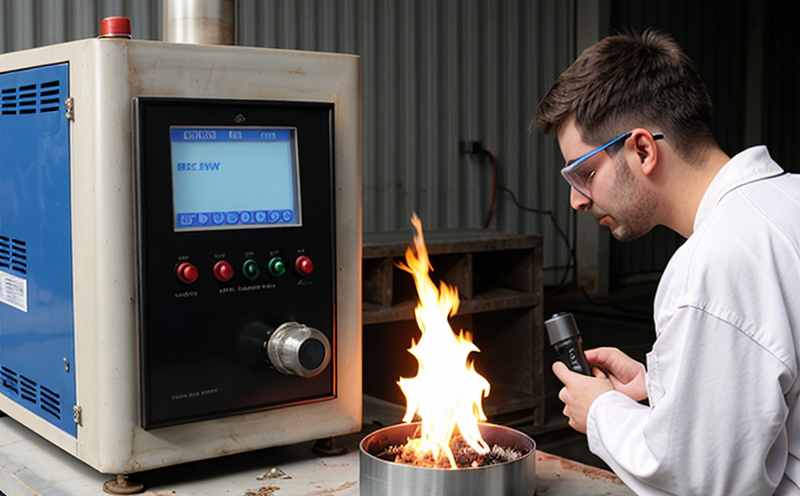ISO 6946 Thermal Insulation Performance Testing
The ISO 6946 standard specifies a method for determining the thermal performance of building insulation materials. This service is critical in ensuring that HVAC equipment meets strict thermal insulation standards, thereby enhancing energy efficiency and reducing operational costs.
Thermal insulation plays a pivotal role in modern HVAC systems by minimizing heat transfer between indoor and outdoor environments. The performance of this insulation directly impacts the overall efficiency of HVAC units, influencing heating, cooling, and ventilation requirements. Ensuring compliance with ISO 6946 is essential for manufacturers aiming to produce high-quality products that meet international standards.
Our testing facility uses advanced equipment calibrated to international standards such as ISO, ASTM, EN, and IEC to perform these tests accurately. The process involves subjecting the insulation material to controlled environmental conditions that simulate real-world scenarios. This ensures a precise measurement of thermal resistance (R-value) and conductance (U-value). The results provide valuable insights into the insulating properties of materials, helping manufacturers make informed decisions about their product specifications.
One key aspect of ISO 6946 testing is the use of guarded hot plate apparatus. This method allows for a controlled environment where the thermal resistance and conductivity of insulation can be accurately measured over time. The test setup involves placing the sample between two plates, one heated and the other cooled, with a known temperature difference. The heat flow through the sample is measured using sensors, which are then used to calculate the R-value.
The quality of insulation material significantly affects HVAC system performance. By adhering to ISO 6946, manufacturers ensure their products meet stringent thermal performance criteria. This not only enhances product reliability but also contributes to environmental sustainability by reducing energy consumption and carbon footprint. The testing process is robust and repeatable, providing consistent results across various batches of insulation.
The importance of this service extends beyond mere compliance; it supports the development of innovative materials and designs that can further improve HVAC efficiency. By leveraging ISO 6946 testing, engineers and researchers can identify areas for improvement in existing products and explore new technologies that could revolutionize the industry. This continuous improvement cycle is crucial in keeping up with evolving market demands and regulatory requirements.
Our laboratory ensures that all tests are conducted under strict quality control measures to maintain accuracy and repeatability. The use of standardized procedures and high-precision equipment guarantees reliable data, which is essential for making informed decisions about product development and quality assurance. Compliance with ISO 6946 standards enhances the reputation of manufacturers in the HVAC sector, fostering trust among customers.
The implications of this service are far-reaching, affecting not only the HVAC industry but also broader sustainability efforts globally. By promoting efficient use of resources, these tests contribute to a more sustainable built environment. The insights gained from ISO 6946 testing can be applied across various sectors, including construction and manufacturing, further emphasizing its importance in modern industrial practices.
Quality and Reliability Assurance
- Strict adherence to international standards such as ISO 6946 ensures consistent test results.
- The use of guarded hot plate apparatus maintains high precision in measuring thermal resistance.
- Continuous calibration of equipment guarantees accurate data collection.
- Quality control measures ensure repeatability and consistency across multiple tests.
Our laboratory is committed to maintaining the highest standards of quality and reliability, employing rigorous protocols and cutting-edge technology. This approach ensures that every test conducted adheres to industry best practices and provides accurate results. The meticulous nature of our testing process guarantees trustworthiness in our findings, which are crucial for manufacturers aiming to meet international regulatory requirements.
International Acceptance and Recognition
The ISO 6946 standard is widely recognized across the globe, making it a key benchmark for thermal insulation performance testing. Many countries have adopted this method as part of their national standards for HVAC equipment. This widespread acceptance ensures that manufacturers can confidently use these results in international markets.
Our laboratory adheres to these internationally recognized standards, ensuring that the tests we conduct are not only accurate but also widely accepted by regulatory bodies and industry professionals worldwide. By participating in this global consensus, we contribute to the advancement of HVAC technology and sustainability practices globally.
Use Cases and Application Examples
The application of ISO 6946 testing is extensive, covering various scenarios within the HVAC sector:
- New Product Development: Testing helps in identifying optimal materials for new product lines.
- Quality Assurance: Regular tests ensure consistent performance across different batches and manufacturing processes.
- Compliance Audits: These tests are essential during regulatory compliance audits to demonstrate adherence to international standards.
- R&D Projects: Researchers use these tests to explore new materials and technologies that enhance insulation properties.
By leveraging ISO 6946 testing, manufacturers can ensure their products meet the highest quality standards. This not only enhances product reliability but also supports broader sustainability goals by promoting efficient resource utilization in HVAC systems.





